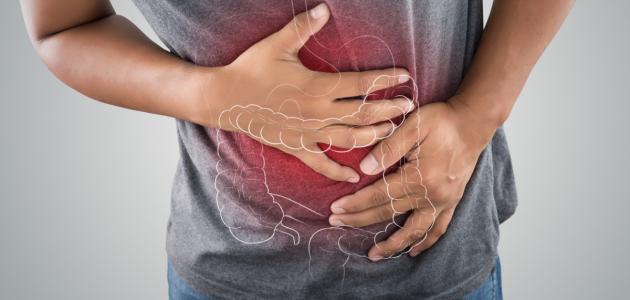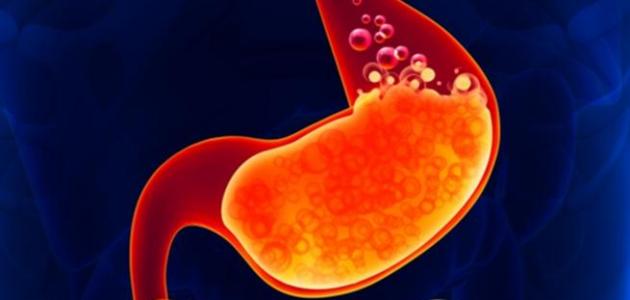Contents
diarrhea
The term diarrhea refers to the medical condition that is represented by passing watery or loose stools at least three times per day, and it may be accompanied by a feeling of discomfort and discomfort in some cases, and it may lead to dehydration, and the state of diarrhea occurs with the presence of factors or causes A lozenge that transforms the body's ability to absorb water in the intestine. Either the small intestine or the large intestine, known as the colon , [1] [2]There are many types of diarrhea, as it is classified into acute, persistent, and chronic , and the acute type is the persistence of diarrhea for a period ranging from one to two days and disappears after several days without the need for treatment. It is the most common type, while persistent diarrhea occurs for several weeks. Its duration usually ranges between two to four weeks, and chronic diarrhea is the type that lasts for more than four weeks, or diarrhea that occurs regularly for a long period of time. [3]
Causes of diarrhea
Diarrhea often occurs when the body excretes additional liquid in the intestine, or as mentioned previously, when the liquid is not absorbed from the contents of the intestine, which in both cases leads to the production of liquid stools, and the causes of diarrhea will be explained in some detail below. [4]
Acute and persistent diarrhea
The following are the most common causes of acute and persistent diarrhea: [5] [6]
- Infection: Diarrhea may be caused by three main types of infection, we mention them as follows:
- Viral infection, as infection causes most cases of diarrhea; An example is infection with the norovirus or rotavirus, also known as the Rotavirus, and viral gastroenteritis is also a common cause of acute diarrhea, and in general, diarrhea caused by Viral infection for a period of time ranging from approximately three to seven days, and it is accompanied by symptoms ranging from mild to moderate, and the symptoms of this condition are associated with frequent watery bowel movements, abdominal cramps, and low-intensity fever .
- Parasitic infection, and examples of parasitic infections that cause diarrhea: Cryptosporidium enteritis , amoebic infection and Giardia infection , and it may enter the human body when eating Or drinking water contaminated with it, so that it settles in the gastrointestinal tract; In this case, known as foodborne disease, parasitic infections can cause persistent diarrhea.
- Bacterial infection, as bacterial infection causes the most dangerous form of diarrhea caused by infection, and there are many types of bacteria that may lead to infection, and the most common are: Campylobacter , Escherichia coli , and Salmonella bacteria , and Shigella bacteria , and bacteria can enter the human body by eating food or drinking contaminated water, and bacterial infection may cause severe symptoms. As it is usually accompanied by vomiting, fever, severe abdominal cramps or abdominal pain, and bowel movements that may be watery occur frequently, and some may suffer from explosive diarrhea , which is represented by the release of watery, loose stools accompanied by gas, and is characterized by its strong Very close to being violent,[6] [5] In this context, it is referred to as a condition known as Travelers' diarrhea, which is a form of intestinal infection that is caused by eating contaminated food or drink given to a person by food providers who do not wash their hands after entering the bathroom. The most common cause of this type is the Escherichia coli bacteria. [7]
- The use of certain types of medicines: Diarrhea may result as one of the side effects resulting from the use of some types of medicines, and consulting a doctor or reading the information leaflet accompanying the medicine contributes to inferring the extent to which this is possible, [8] and some cases of diarrhea caused by the use of medicines may require the doctor to Reducing the dose or changing the drug, taking into account the need to avoid stopping the drug on its own just because it causes side effects, so it is worth consulting a doctor in this regard, and the doctor is able to take the appropriate action and direct instructions related to reducing the likelihood of side effects, [9] and what follows is mentioned For some types of drugs that cause diarrhea: [8]
- Antibiotics.
- Antacids containing magnesium.
- Some chemotherapy drugs.
- Non-steroidal anti-inflammatory drugs (NSAIDs).
- Selective serotonin reuptake inhibitors.
- Statins Which is used to lower the level of cholesterol in the body.
- Laxatives; It is used to empty the bowels.
Chronic diarrhea
Chronic diarrhea leads to several causes, and the most prominent of which are mentioned below: [10]
- Lactose intolerance: , as people with this condition suffer from diarrhea after consuming milk or dairy products that contain lactose, because the digestive system faces difficulty in digesting lactose, and the likelihood of lactose intolerance or its severity may worsen With age; After childhood, levels of the enzyme that helps digest this sugar decrease.
- Difficulty digesting fructose sugar: People with this condition also suffer from diarrhea, and this sugar is naturally found in fruits and honey, and it is added as a sweetener for some drinks.
- Artificial sweeteners: Sorbitol and Mannitol cause diarrhea in some healthy people, and these sweeteners are usually found in products without sugar and gum.
- Food allergy: Some people may experience diarrhea as an allergic reaction to eating certain types of food. Such as eggs, seafood, dairy products, and soybeans. [9]
- Undergoing some surgeries: the patient may suffer from chronic diarrhea after an abdominal surgery Such as appendiceal operations, or removal of gallstones, or those performed in the liver, small or large intestine, stomach, pancreas, or spleen. [11] [6]
- Digestive disorders: Diarrhea may be a sign of a more serious health problem in the digestive system . [9] The most prominent of these disorders are mentioned below: [8]
- Irritable bowel syndrome (IBS), which affects normal bowel function, and is a medical condition that is not fully understood.
- Inflammatory bowel diseases, represented by Crohn's disease or ulcerative colitis .
- Celiac disease, also known as Celiac disease , is one of the digestive conditions that occurs as a reaction to exposure to gluten.
- Bile acid malabsorption malabsorption, which is the accumulation of bile or bile produced by the liver in the digestive system.
- Chronic pancreatitis.
- Diverticular disease, also known as diverticular disease, occurs when bumps or pockets develop in the lining of the intestine.
- Bowel cancer, which may cause many symptoms; These include diarrhea and blood in stools.
- Colitis microscopy , and symptoms of a continuous diarrhea usually occurs during the night, and often this situation affects the elderly. [12]
- Endocrine-related causes: Diarrhea may occur as a result of hormonal factors sometimes, as it occurs when carcinoid tumors and Addison disease . [12]
- Chronic infection: Chronic diarrhea may be due to the use of antibiotics or earlier travel, and the cause may be due to many types of bacteria and parasites. [12]
- Consumption of alcoholic beverages: The consumption of alcohol may lead to the production of loose stools, regardless of the amount. [5]
- Excessive use of laxatives: The use of laxatives in high doses or continuously is one of the main causes of diarrhea. [5]
Groups vulnerable to diarrhea
Although diarrhea is very common and not a medical condition of concern for most people; Anyone may be affected several times a year, but it may be a serious problem for certain groups, including the following: [13]
- Elderly.
- Young children.
- People with medical conditions.
References
- ↑ "diarrhea" , medlineplus.gov , Retrieved 01-06-2020. Edited.
- ↑ "Diarrhea" , www.cancer.org , 02-2020, Retrieved 13-05-2020. Edited.
- ↑ "Diarrhea" , my.clevelandclinic.org , 13-04-2020, Retrieved 13-05-2020. Edited.
- ↑ "Diarrhoea" , www.nhsinform.scot , 14-02-2020, Retrieved 15-05-2020. Edited.
- ^ A b v w . John of P. Cunha, the DO, FACOEP (14-04-2020), "How To To Treat Diarrhea" , Www.emedicinehealth.com , Retrieved 18-05-2020. Edited.
- ^ A b t " the Symptoms & Causes Of Diarrhea" , Www.niddk.nih.gov , Retrieved 18-05-2020. Edited.
- ↑ "Traveler's Diarrhea" , www.webmd.com , Retrieved 18-05-2020. Edited.
- ^ A b v "What is diarrhea?" , www.your.md , Retrieved 18-05-2020. Edited.
- ^ A b t look - Welch (29-08-2019), "Diarrhea: the Symptoms, Causes, Treatment And the Options" , Www.everydayhealth.com , Retrieved 18-05-2020. Edited.
- ↑ "Diarrhea" , www.mayoclinic.org , 16-05-2019, Retrieved 18-05-2020. Edited.
- ↑ "Diarrhea" , www.nchmd.org , 16-05-2020, Retrieved 18-05-2020. Edited.
- ^ A b v , Markus MacGill (28-11-2017), "What ' You shouldnt Know About Diarrhea" , www.medicalnewstoday.com The , Retrieved 19-05-2020. Edited.
- ↑ "Diarrhea" , my.clevelandclinic.org , Retrieved 19-05-2020. Edited.



